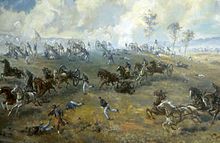In the first of a seven part series, author and journalist, Chris Hedges sits down with Real News Network’s Paul Jay discussing how urban poverty led him to question everything and his commitment to the social movement:
I wanted to be an inner-city minister. You know, I was at the time. I was planning on being ordained. I was planning on spending my life in the inner-city.
And I had a kind of clash (and I write about it in the first chapter of my book Losing Moses on the Freeway: The 10 Commandments in America) with the institutional church and liberal institutions like Harvard Divinity School that like the poor but didn’t like the smell of the poor. They spent a lot of time talking about empowering people they never met. And that hypocrisy was something that I had great difficulty with. [..]
And I’ve always placed myself in or amongst the oppressed. Whether that was in Gaza, whether that was in El Salvador, whether that was in Sarajevo, I’ve always positioned myself as a reporter in a place where I was amplifying or giving voice to those who were being brutally oppressed. [..]
I would say actually the really seminal moment was moving into the inner city and watching what we do to our poor, the warehousing of our poor, the shattering of lives, especially the lives of children, of poor children. That maybe rattled me more than almost anything I saw. And I’ve seen horrific things. I remember going back to the chaplain at Colgate after a few months of living in the projects and just walking into his office and sitting down and saying, are we created to suffer? And his answer was: is there any love that isn’t?
And I think for a white person of relative privilege to confront the cruelty of what we do to poor people of color in this country and to begin to understand institutional forms of racism, all the mechanisms by which we ensure that the poor remain poor in, you know, what Malcolm X and Martin Luther King correctly called these internal colonies really rattled me, really shook me. It made me question all sorts of things–the myth we tell ourselves about ourselves, the nature of capitalism, the nature of racism, exploitation.
So those two and a half years I spent in Roxbury were quite profound–not that, of course, I wasn’t stunned at the evils of empire in places like El Salvador or Gaza or anywhere else. But Roxbury was quite a shock for me.
Full transcript can be read here


 In the online support for the April, 2013 Scientific American article on Energy Return on Investment (EROI), Scientific American online interviewed Charles Hall, developer of the EROI concept, on whether Fossil Fuels will be able to maintain economic growth. In one of his answers, Charles Hall responds to the question:
In the online support for the April, 2013 Scientific American article on Energy Return on Investment (EROI), Scientific American online interviewed Charles Hall, developer of the EROI concept, on whether Fossil Fuels will be able to maintain economic growth. In one of his answers, Charles Hall responds to the question: 
Recent Comments